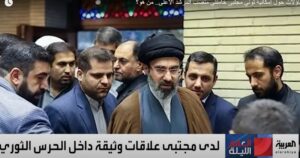Qatar’s affiliation with the “Muslim Brotherhood,” Hamas’ parent organization, underscores its vested interest in upholding Hamas’ rule.
This aligns with the Brotherhood’s broader agenda of fostering an extremist Islamic enclave, a feat achieved in Gaza since 2007.
Disagreements between President Biden and Prime Minister Netanyahu over the Rafah crossing’s status serve Qatar’s agenda, stalling efforts to pressure Hamas.
Qatar capitalizes on this discord to buy time, hoping international pressure on Israel will prevent actions like the occupation of Rafah and the “Philadelphia Corridor.”
Qatar’s strategy involves preserving Hamas’ governance alongside a revitalized Palestinian Authority (PA) in Gaza.
Conversely, Prime Minister Netanyahu opposes the PA’s presence in the Strip.
Reports suggest President Biden, amidst election pressures, softened his stance on toppling Hamas, opting for its inclusion in a technocratic government under the PLO, albeit disarmed.
Yahya Sinwar exploits this political ambiguity, unwilling to concede to Hamas’ military defeat.
He aims to consolidate control by resettling displaced persons and relocating armed elements to Gaza’s north, bolstering Hamas’ influence.
Amidst growing international and internal pressures on Israel, Sinwar delays hostage negotiations, confident of extracting better terms with time.
Qatar, cognizant of its international and regional standing, views safeguarding Hamas as crucial.
Failure to do so could bolster rivals like Saudi Arabia and the United Arab Emirates, weakening Qatar’s influence.
Hamas’ possession of Israeli hostages grants it leverage.
Sinwar aims to capitalize on this advantage to compel Israel’s withdrawal from Gaza, positioning himself as the victor.
Israel’s response to Hamas’ maneuvers remains uncertain amidst these complex dynamics.




